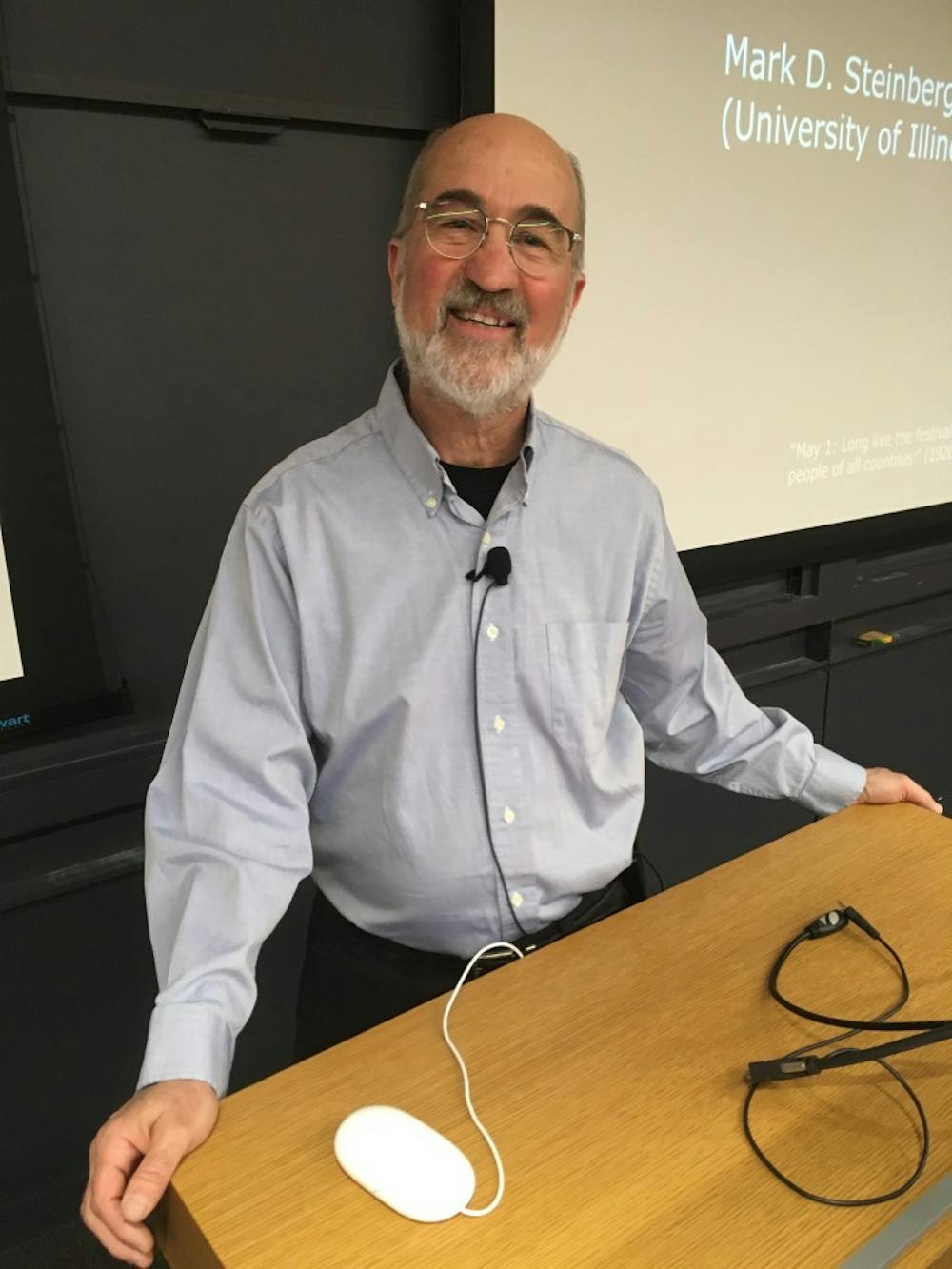On May 1, University of Illinois history professor Mark Steinberg stressed in the final lecture in a centennial series that although revolutions are never perfect, the effort behind them is what matters. Through historical documents, artwork, and inspiration from philosopher Walter Benjamin, Steinberg gave the audience a unique view of the proletariat imagination behind the 1917 revolution.
Steinberg is guided by the question of what history means to people as they are actually experiencing it.
“I have become very preoccupied with the lived and experiential worlds that exist within revolutions,” Steinberg said. “We always experience and interpret the past through what we are and what we live.”
Oftentimes, the present moment feels dark and hopeless, according to Steinberg.
“Experiences in the world we live in often unfold in dark places,” Steinberg said. The Holocaust, for example, was an incredibly dark and painful experience for those who lived through it.
Steinberg stressed that human efforts like the Russian Revolution don’t end up achieving all the demands they fight for. Because of this, revolutions are often disappointing.
Steinberg most recently taught a college course about revolution that went backwards from the Black Lives Matter movement to the Russian Revolution. He said that during class, all his students expressed the same anxieties about fighting for progress, because it can sometimes feel like all hope is lost.
“There is reason to talk about the present as the darkness of the lived moment. There is reason for anxiety, for despair, perhaps for anger about the world, about humanity, about the earth,” Steinberg said. “It is very reasonable to be depressed.”

Prime examples of disappointments can be seen in aftermath of the Arab Spring, the Occupy Wall Street Movement, and election protests in modern day Russia, said Steinberg.
Of course, the years following 1917 were full of harsh realities as proletariat leaders like Trotsky were killed and Stalin’s authoritarian regime began. Certain economic equalities were gained, said Steinberg, but not broad freedoms.
However, if Steinberg was most clear about one thing, it was that he does not care about the outcomes of revolutions. He stressed the idea that it is the job of protests to demand the impossible.
Through looking at daily papers, poems by workers and soldiers, and collectively written petitions from the years leading up to 1917, Steinberg arrived at a more personal meaning behind revolutions everywhere.

During his talk, Steinberg stressed the motif of flight, often alluding to the German philosopher Walter Benjamin’s famous idea of the “angel of history.” According to Benjamin, revolution is a leap through the open air of history.
Through his research, Steinberg concluded that the defining image of the Russian Revolution is not the sickle and hammer that ordinarily comes to mind, but an angel. He pointed to murals created in Russia in the years directly leading up to 1917, one of which eventually loomed over Lenin’s grave.
Steinberg said that if we want to better study revolutions and better judge our own attempts at reforming society, we must not get hung up on the results of our efforts.
“We need to take the darkness of reality and the outcomes of revolutions seriously,” but ultimately must appreciate the continual brilliance of humans’ refusal to accept the status quo, said Steinberg.
The lecture “From Necessity to Freedom: How a Utopian Impulse Carried Me Beyond the Disenchantment of Outcomes” was hosted by the program in Russian and Eastern European studies and was held at 4:30 p.m. in the Louis A. Simpson Building.








